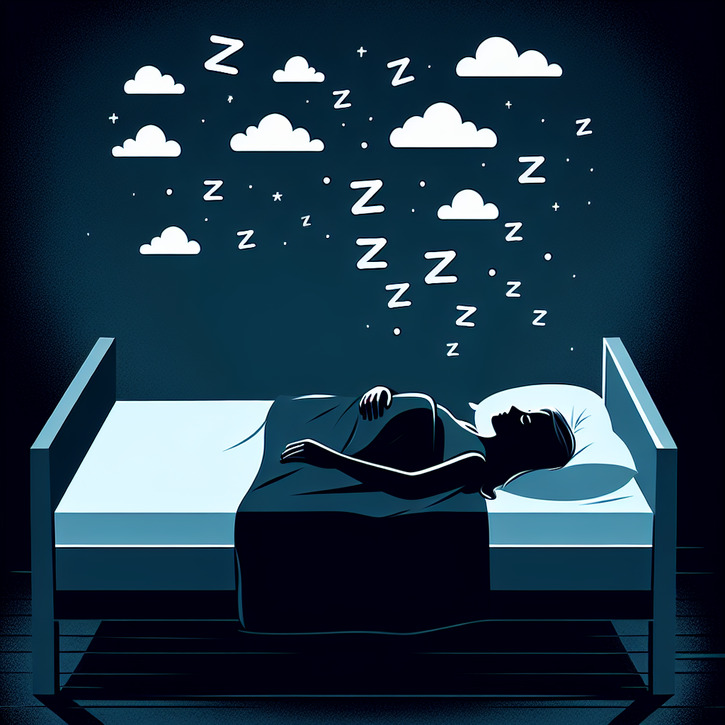Restore Lost Sleep with Sleep Restore: A Comprehensive Guide

Rediscover Restful Nights with Sleep Restore: Your All-in-One Guide
Getting to Know Sleep Restore
So, What Exactly is Sleep Restore?
Imagine a way to naturally tune into your body’s rhythm and finally enjoy that deep, rejuvenating sleep! Sleep Restore isn’t a quick fix or another sleep aid—it’s a holistic approach that blends behavior tweaks, smart environmental changes, and evidence-based strategies. Instead of just knocking you out, it helps your body reset its internal clock so you can truly wake up refreshed. Put simply, this isn’t about falling asleep super fast; it’s about crafting a soothing, balanced nighttime routine that respects your natural need to recharge.
If you’ve been burning the candle at both ends or have tried more conventional methods without much luck, this approach might be just what you need. Sleep Restore is all about committing to a more natural sleep cycle, setting up your body for lasting benefits. Once you start understanding how essential recovery sleep is for overall health, you’ll feel empowered to take charge of your nighttime routine in a whole new way.
Diving into the Science of Sleep Restore
Here’s the scoop: the magic behind Sleep Restore lies in the alignment of your circadian rhythms and the intricate dance of your sleep cycles. Researchers have shown that sticking to regular sleep patterns helps balance hormone production and keeps your brain in sync through all the sleep stages—from that light doze to the deep, dream-filled slumber and the all-important REM sleep. By syncing your body’s natural cycles with environmental cues like light, temperature, and sound, you give your sleep a real boost.
And guess what? Emerging studies reveal that when your sleep is restored to its natural beat, it might even strengthen your immune system, sharpen your thinking, and enhance overall health. Whether it’s catching some morning sunlight or winding down with calming bedtime rituals, these strategies don’t just help you fall asleep—they improve the quality of your sleep over time. Remember, every individual is different, so tailoring these methods to your own lifestyle is key.
Why Sleep Restore is a Game-Changer for Your Health
The benefits of a good night’s sleep extend way beyond just feeling rested. When you incorporate sleep restore practices into your routine, you might notice sharper focus, higher energy levels, and fewer mood swings. It’s no wonder that experts rave about how balancing your stress hormones through better sleep can counteract the pressures of our fast-paced, screen-centered world. Many people find that not only do they fall asleep faster, but their sleep is deeper and more cleansing—benefits that ripple out into better metabolism and improved immunity.
Even more, sleep restore can help reduce the risks associated with chronic conditions like heart issues, anxiety, and depression. By re-establishing natural sleep patterns, it lets your body repair and regenerate, a crucial process for long-term health. Increasingly, health professionals are blending sleep restore techniques with traditional treatments, showing just how versatile and beneficial this approach can be for overall well-being.
How Sleep Restore Can Help Tackle Sleep Disorders
Beating Insomnia with Sleep Restore
Let’s talk insomnia—a frustrating struggle for many that often leaves you tossing and turning. The beauty of sleep restore is that it targets the root of the problem by recalibrating your body’s internal clock. Establishing a steady routine that tells your brain, “Hey, it’s time to wind down,” can make all the difference. Simple habits like a fixed bedtime, disconnecting from gadgets, and engaging in calming exercises work together to ease you into sleep, effectively dialing down the stress that keeps you wide awake.
The trick here isn’t a one-off fix, but the cumulative magic of small, consistent changes. Over time, as your body begins to respect these natural signals, you’ll likely notice fewer restless nights. It might take a bit of persistence, but the gradual improvements in reducing the frequency and duration of insomnia can be very rewarding. Both clinical observations and countless testimonials point to sleep restore making a real difference for those battling sleepless nights.
Reining in Your Circadian Rhythm
Achieving a good night’s sleep boils down to respecting your body’s natural clock. Our bodies are hardwired to follow roughly a 24-hour cycle, influenced by cues like sunlight and temperature. Sleep restore is all about getting back in sync with that rhythm. It encourages a steady routine of hitting the hay and rising at the same times, even on weekends, setting up a natural pattern that regulates everything from hormone levels to sleep cycles.
And the perks don’t stop at just sleep—fine-tuning your circadian rhythm can lead to better digestion, a happier mood, and even improved brain function. This method is especially handy if you’ve had your sleep pattern thrown off by hectic work schedules or erratic habits. With a little bit of dedication, embracing these principles can flood your days with more energy and overall vitality.
Supporting Those Facing Sleep Apnea
Sleep apnea, a condition where breathing repeatedly stops during sleep, poses serious challenges for restful slumber. While Sleep Restore isn’t a replacement for medical treatments, it does play a supportive role in easing the symptoms and risks linked with sleep apnea. By advocating for a consistent sleep schedule and an optimized sleeping environment, these strategies can reduce the number of apneic episodes you experience.
Think of it this way: by maintaining a space that’s conducive to relaxation—a quiet, cool, and organized bedroom—you’re helping your body breathe easier and reducing strain on your heart. Experts often point out that when sleep restore methods are mixed with targeted medical advice, the combined effect can lead to better overall health and quality of life. It’s all about working smarter to support your body’s natural healing processes.
Bringing Sleep Restore into Your Nightly Routine
Crafting a Consistent Sleep Restore Schedule
The cornerstone of effective sleep restore is having a solid, predictable schedule. Treat your sleep like a top priority—set a regular bedtime and wake-up time, even on your days off. This consistency nudges your body into a natural rhythm, making it easier to drift off and enjoy deep sleep. If your current routine is all over the place, consider gradually shifting your habits until you find a schedule that works.
Enhance your routine with pre-sleep rituals that signal it’s time to chill out. Whether it’s curling up with a good book, meditating, or soaking in a warm bath, these little wind-down activities can make a big difference. Over time, sticking to a regular schedule eases anxiety and molds your mind and body into a state of calm, both during the day and when you finally hit the pillow.
Creating a Sleep-Friendly Environment
Your surroundings play a huge role in how well you sleep. Think of your bedroom as a sanctuary for relaxation—a cool, dark, and quiet space can be a game-changer. Investing in blackout curtains, comfortable bedding, and even a white noise machine can work wonders if noise or light has been interrupting your sleep. A tidy, well-thought-out space sends a clear message to your brain that it’s time to power down.
It’s not just about the physical environment, though. Cut back on screen time at least an hour before bed to avoid the disruptive blue light of devices. Swap your digital distractions for calming activities that naturally support your sleep restore journey. The overall goal is to design an atmosphere that invites relaxation and minimizes external disturbances, helping you sink into a sound, restorative sleep.
Embracing Natural Methods to Boost Sleep Restore
Natural Remedies to Enhance Your Sleep Routine
Many people are turning to nature’s own remedies to complement their sleep restore practices—and for good reason. Herbal teas like chamomile, valerian root, or passionflower have a long history of helping to smooth that transition into sleep. These natural ingredients ease your nervous system and reduce anxiety, essentially nudging your body into rest mode.
Alongside a warm cup of tea, consider the calming effects of aromatherapy, a soothing bath with Epsom salts, or even some light stretching before bed. These gentle tricks not only help you settle down but also fit perfectly into a natural, holistic approach to sleep. You might find that combining these remedies with your existing sleep habits creates a balanced, effective routine that leaves you feeling revitalized in the morning.
The Perfect Pair: Diet, Exercise, and Sleep Restore
It turns out, what you eat and how you move can have a direct impact on your sleep quality. A diet rich in whole foods, while cutting back on sugars and processed snacks, can help keep your blood sugar steady—a key factor in sound sleep. Similarly, regular exercise, especially earlier in the day, not only burns off energy but also releases endorphins that help you wind down in the evening.
When you combine these healthy habits with sleep restore techniques, the benefits multiply. It’s a holistic approach where balanced meals, a touch of physical activity, and mindful relaxation work together to signal to your body that it’s time to rest. This synergy between lifestyle choices and your sleep habits can make your path to better sleep smoother and more sustainable.
Mindfulness and Relaxation: The Final Pieces of the Puzzle
Finally, let’s not overlook the power of mindfulness. Techniques like meditation, progressive muscle relaxation, and deep breathing exercises can have a profound impact on your sleep. They help quiet the mind, release built-up tension, and create a mental reset that paves the way for a peaceful night’s sleep.
Incorporating these practices into your nightly routine can transform the way you experience rest. They work hand in hand with sleep restore strategies, ensuring that both your mind and body are prepared for a night of deep, uninterrupted sleep. Whether you’re new to mindfulness or have been practicing for years, integrating these techniques may be just what you need to complete your sleep restore journey.






